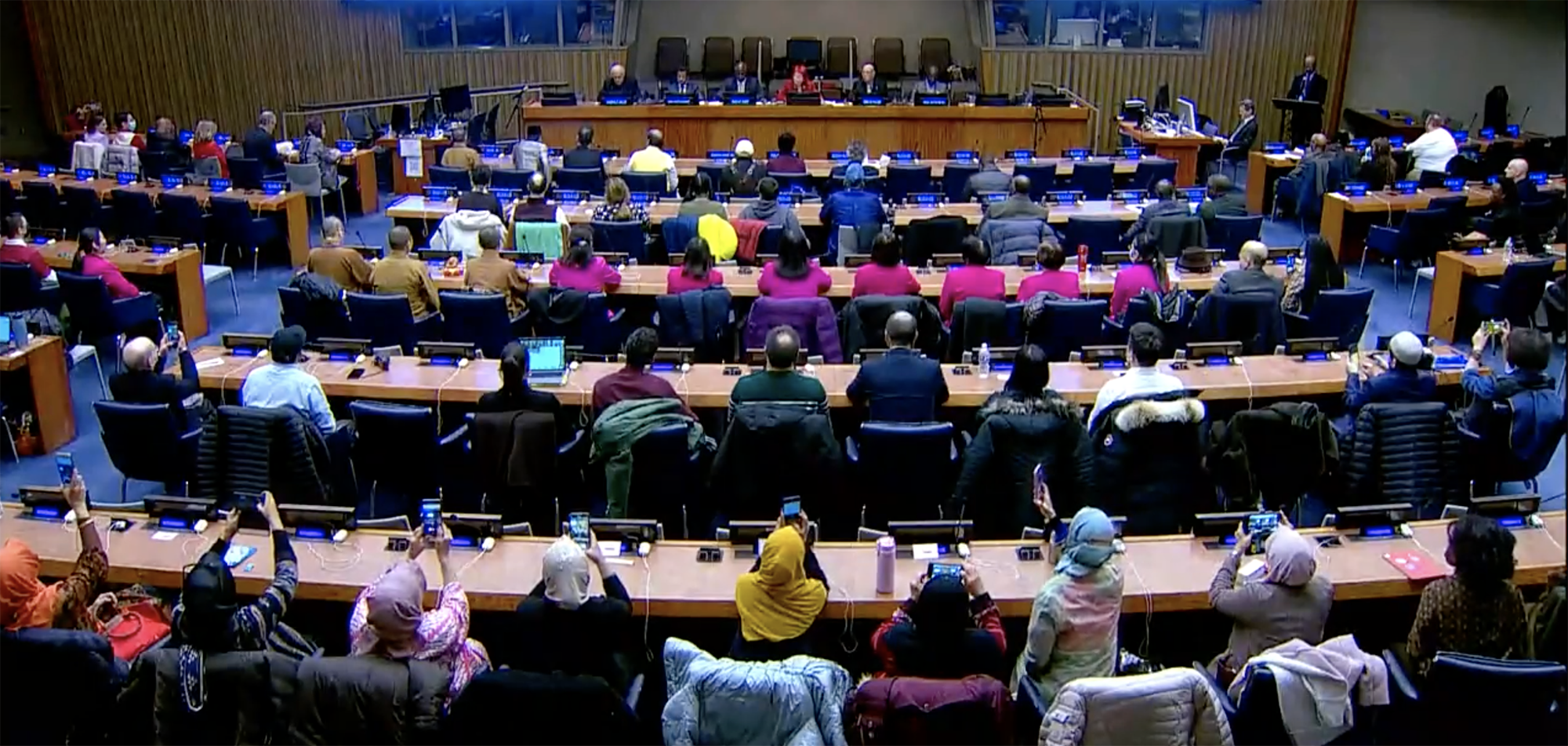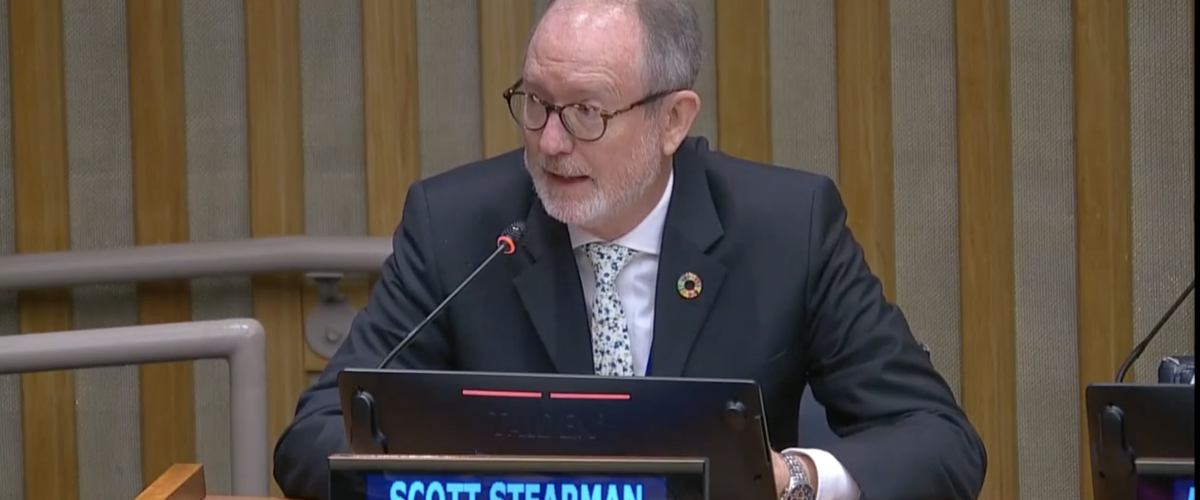United Nations World Interfaith Harmony Week focused on how people and communities of faith can work toward providing peace, gender equity, mental health and environmental preservation in a world embroiled in conflict.
But several speakers at the event, held the first week of February, noted seven days aren’t enough for this annual emphasis.
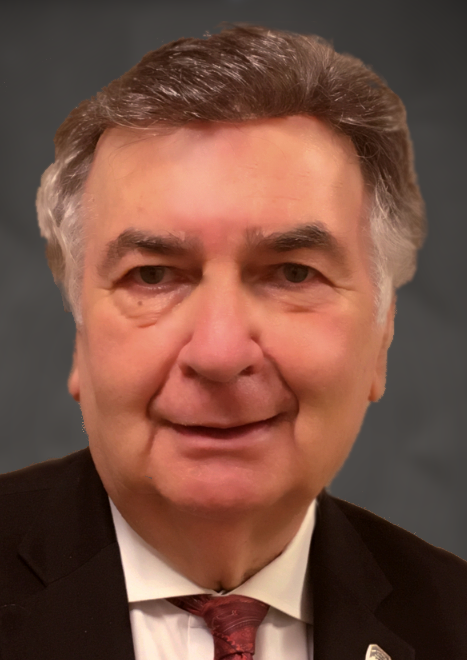
Joseph Potasnik
“We have much to do together. We can’t allow Harmony Week to be just one week. It has to continue throughout the year and throughout our lives,” said Rabbi Joseph Potasnik, executive vice president of the New York Board of Rabbis.
Potasnik was one of numerous U.S. and international religious leaders to speak during “Harmony in a World in Crisis,” held Feb. 3 at United Nations headquarters in New York City. Judy Kuriansky, a psychologist, author and United Nations NGO representative, moderated the event.
Scott Stearman, the United Nations representative for the Cooperative Baptist Fellowship and Baptist World Alliance, tapped into the music of his religious roots to connect with the themes of the gathering.
“Something I learned long ago is that harmony requires people singing different notes at the same time and in some collaborative fashion,” he said. “If you’ve heard a choir, if you have heard Bono, if you’ve been at the Met, if you have been to Tibet or in some South African village, you know harmony is a universal human experience.”
Harmony also describes human interactions at their best, he added. “The most beautiful music in the world is made with harmony when you have just the right notes stretched in just the right way, with just the right amount of dissonance expressed in the right tonality.”
But hitting those notes requires being in relationship with others and a willingness to let others express their faith and values, he explained. “It really is about learning to love one another and true, legitimate, authentic relationships. That for me is where we find life and ultimately where we find God in relation with one another and with the God that put us all here.”
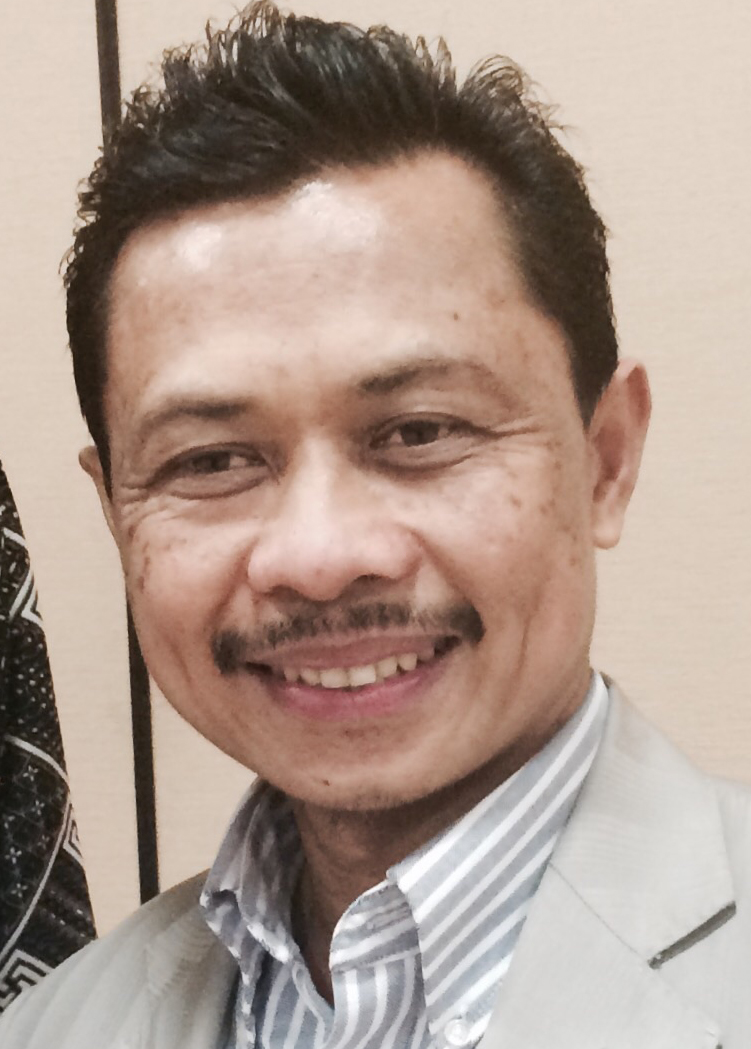
Shamsi Ali
Working in unison is what God intended when God created humanity, said Shamsi Ali, director of the Jamaica Muslim Center in Jamaica Queens, N.Y., and president of the Nusantara Foundation.
Yet the peace meant to derive from that unity is blocked by the many manifestations of injustice, he said. “One of those manifestations is economic injustice. Poverty prevails everywhere in the world. … I can be peaceful, but if my stomach is hungry, I may not be peaceful.”
Ali added that justice must be sought for all, not just for certain individuals and groups: “We have to understand that we must preserve our peace and harmony between ourselves. And one of the things we have to take into consideration very seriously in protecting our peace is being sensitive to one another.”
Jesus’ encounter with the woman at the well, as told in the Gospel of John, illuminates a path forward for faith groups that want to foster harmony, said Theodora Brooks, the priest in charge of St. Margaret’s Episcopal Church in the Bronx and the first woman to be ordained in the Anglican Province of West Africa.
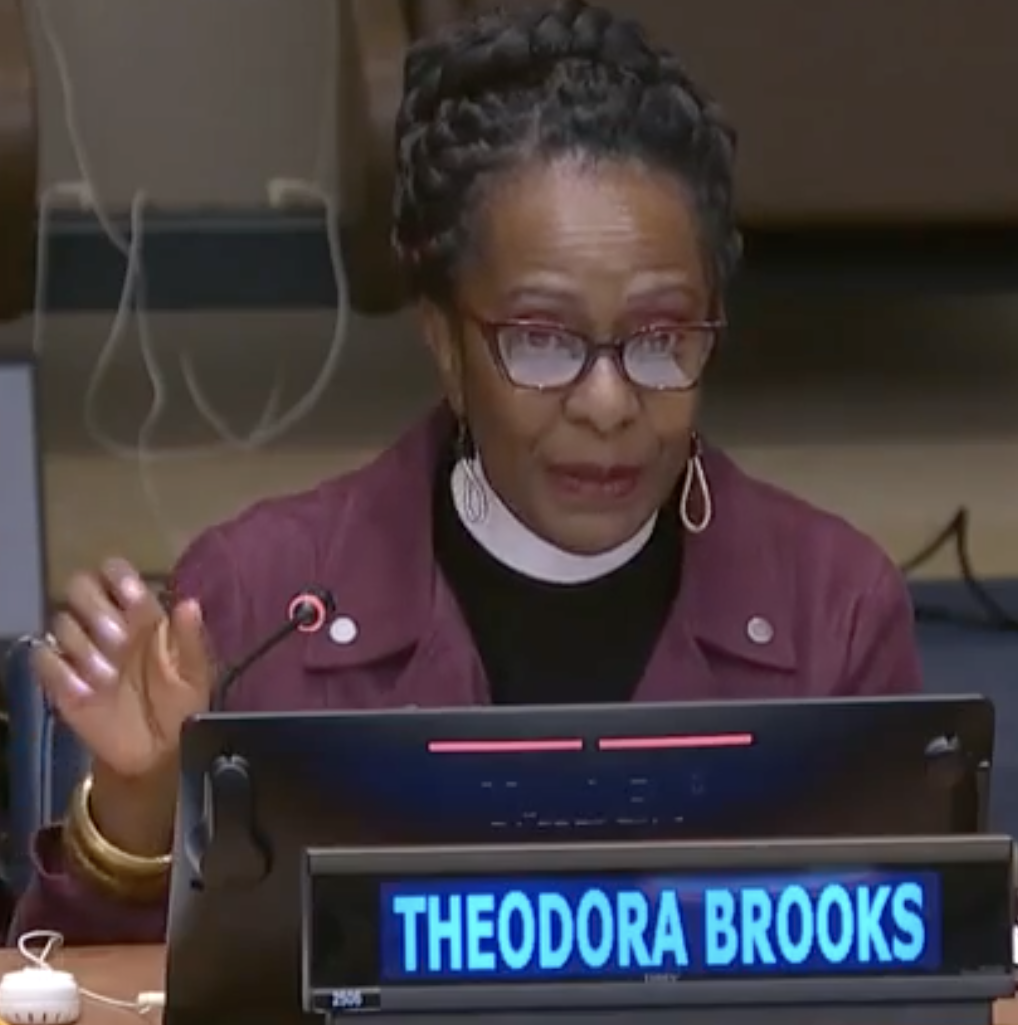 Brooks said Christ looked past the woman’s religion and broken marriages to invite her into the fulness of his life and ministry.
Brooks said Christ looked past the woman’s religion and broken marriages to invite her into the fulness of his life and ministry.
“As people of faith, we ought to follow the example of Jesus and create a more bountiful and harmonious world by ending discrimination based on religion, gender, ethnicity, marital status, physical ability or any label or tool that is easily used to exclude others,” she said.
The goal must be to respect the dignity of all human beings and to have conversations that make all people feel heard, seen and safe, she explained. “When that happens, those who have had to hide or make themselves so small will rise up and become community leaders and community builders.”
Building such a world takes willingness, she added. “We can go to the moon, right? We can explore space. Well, what about ending discrimination? How serious are we? We are to fight to end it because it does not bring life. It denies us the ability to live healthy, productive and fulfilled lives.”
Potasnik focused on the central role faith communities can and must play in the emotional healing of a divided world.
“We all need each other to open doors for one another. After 9-11, when people were seeking refuge, running away from that horror, where do they run to? They ran to houses of worship in the downtown area,” said Potasnik, who served as a New York Fire Department chaplain after the 2001 terror attacks.
Religion likewise provided solace in the wake of the 2017 “Unite the Right” rally in Charlottesville, Va., she continued. “When there was a horrific expression of hatred and Jews were under attack, it was Christians and Muslims who said to the hate mongers, ‘You want them, you got to go through us.’”
When a gunman killed 51 Muslims and injured 40 others in two mosques in New Zealand in 2019, “we all gathered here in New York around the Islamic Center at NYU. We said the same: ‘You want to attack them. Attack us,’ Potasnik said.
